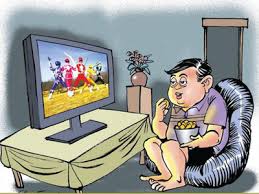Obesity is prevalent in epidemic proportions world over, J&K included, spiraling the way for diabetes, cardiovascular and other diseases, as per a joint study by World Health Organization (WHO) and Imperial College London published this week in Lancet. Obesity in children is a serious concern.
Last Tuesday, Lancet published the largest ever study on obesity ahead of World Obesity day (11 October). The study has revealed that in India, the number of obese children has increased ten-fold since 1975. Two doctors from J&K, Dr Abdul Hameed Zargar and Dr Shariq Rashid Masoodi have contributed to the study, the largest such exercise focused on obesity and disorders/diseases related to it.
Lead author of the study, Prof Majid Ezzati of Imperial School of Public Health, in a press statement said, “Over the past four decades, obesity rates in children and adolescents have soared globally, and continue to do so in low and middle-income countries.”
In J&K, Dr Zargar and Dr Masoodi said that obesity was the most immediate health concern that needed focus of “everybody, not just doctors”. Dr Zargar said, “Obesity in J&K is getting worse by every decade. And to make things worse, the onset of obesity is now occurring at ever-lowering age.”
Dr Masoodi said that their studies showed that in Kashmir, one out of three school going children was either over-weight or obese. “We found that in children, 24.7 percent were over-weight and 11.5 percent were obese. That makes 36.2 percent of our children either over-weight or obese,” he said.
In adults, Dr Zargar said 15-20 percent of population was obese/over-weight. He said that the rising prevalence of obesity was the “root cause of diabetes, cardiac ailments and Poly Cystic Ovarian Disease (PCOD) epidemic in Kashmir”.
Dr Masoodi said in our local context we needed to “discourage the common practice of calling an obese person as ‘healthy’”. “Obesity is a serious disease and recently was declared so by American Medical Association (AMA),” Dr Masoodi said.
He said that schools and communities needed to work in tandem to reverse the trend of obesity. “We need to make healthy foods available to children in schools and in homes,” he said. He said it was also imperative to make physical activity compulsory and reduce ‘screen time’ of children. “They (children) need to be taken off the screens of mobiles, video games and TVs. They need to go out and play,” he said.
Prof Ezzati writes that the increase in global obesity could be majorly due to the “consumption of energy-dense foods, especially highly processed carbohydrates, which lead to weight gain and poor lifelong health outcomes”.
Incidentally, as per the WHO study, India topped the list of under-weight children. These trends, as per experts bring to focus the importance of nutrition education. “Healthy nutritious foods (are) too expensive for poor families and communities”, the lead author writes, adding that “The trend predicts a generation of children and adolescents growing up obese and also malnourished”.
Every third kid in kashmir is overweight: WHO study






